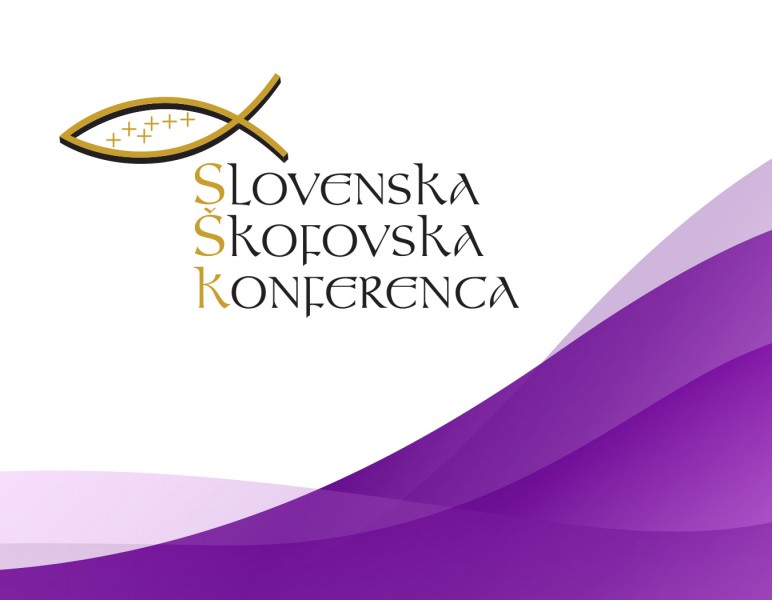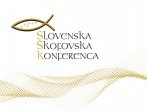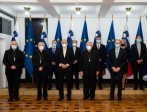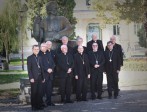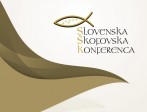|.
5th Sunday of Ordinary Time, February 7, 2021
Dear sisters and brothers,
The word of God, we have just heard, is incredibly close to us in this time of fight for our health and the health and the lives of our loved ones. In the first reading, the Old Testament Job, in his illness and the sudden destruction of economic success and family happiness, complains of the fragility of earthly prosperity and life. It is like a breath that only lasts a fleeting moment. In the Gospel, however, Jesus heals the sick as a sign of the salvation he brings. Above the physical healing, he places the proclamation of salvation. Therefore, he hurries to other places to announce that the Kingdom of God is at hand. His teaching is clear. Physical health is a great good from God, but it is only a sign of another, even greater good, brought only by Jesus Christ. Spiritual health guarantees eternal life in God's love. The physical health that Jesus shared abundantly was a sign or prophecy of salvation, which was the real and ultimate purpose of Jesus' action. Moral virtue and eternal life are also the real and ultimate purposes of our lives. God did not create us to be as healthy as possible and live as long as possible in this world but to be like him and receive His love. That is why Jesus restores our spiritual health, which begins with faith in him and follows his example.
Following Jesus' example, the Church has cared for the sick throughout history. The first hospitals were built next to churches. Many religious men and women, including well-known saints, have dedicated their lives to the sick. Many also fell ill and gave their lives in this service. Their love for God and neighbour was stronger than their fear for their health. In taking responsible care for the neighbour, they knew that the spiritual power of love and selfless sacrifice is the greatest good, as it prepares us for eternal life with God. With all the compassion he showed for the sick, even Jesus always emphasized that sinful distance from God is an even worse calamity. "You are now well. But don't sin anymore or something worse might happen to you" he warned him after healing him (Jn 5: 15). As we tremble for our health, this time of the epidemic is the right time to realize that there is an even worse evil, sinful selfishness, an evil that we could call a spiritual infection. Jesus Christ came to save us from it and its consequences. This is why he also founded the Church: to continue his mission among us.
However, it is precisely our religious life in the church community that was also affected during the epidemic. We suspended the offering of Holy Masses and other sacraments in our churches temporarily not to endanger our health and the health of others. We hoped that it would not last long, but the epidemic deprived us even of the solemn celebration of the Easter and then the Christmas holidays. Of course, nothing can stop us from celebrating the religious truths of Jesus' birth and death and His resurrection by praying and meditating on God's word, both in our families and in the spirit, together with the entire Church. Modern technical means enable us to connect in a way that was not possible a decade ago. We used them to our advantage. However, no television or Internet show can equally replace Sunday's offering of the Holy Eucharist in a parish communion, just as no telephone conversation can equally replace a loving embrace or gathering of friends in person. In this time of forced absence from the Holy Eucharist's regular Sunday offering, we could feel even more that the Holy Mass is not merely observing what is happening at the altar. At the Mass, we participate in the mystery of Jesus' Last Supper, which culminates in Holy Communion. We will now understand even better the Christian martyrs, who would rather be exposed to the danger of death than to renounce the offering of the Holy Eucharist. They knew that without it, they would not be able to exist as Christians.
Therefore, the bishops reluctantly decided to temporarily restrict the Holy Masses' shared offering and other sacraments at the time of the current epidemic. We did it hoping that we would be able to at least partially replace it with a various offering of the Holy Masses at a distance, which we did. We are grateful to everyone who made this possible for us. However, we all feel that this is not how it should be. The Holy Mass is not a show we can watch on a television screen. We do not observe the Holy Mass from afar while cooking lunch or lying on a couch. We attend it in person when we are present in communion with other brothers and sisters and a priest who personally represents Jesus Christ himself and in his name for us, among us. Together we relive the sacrifice of Jesus. This is the only real celebration of the Holy Mass. Other forms, such as the Holy Mass on the radio or the television, are only emergency substitutes that make our absence from the "live" Holy Mass easier during illness or other incapacities but are not equivalent. We have been able to realize all this even more during the epidemic. We are convinced that you can hardly wait to be able to celebrate the Eucharist and the other sacraments as Jesus Christ envisioned them as he commanded us, "Eat this as a way of remembering me," and as Christians of all times have understood it.
If the Slovene proverb that we appreciate health only when we lose it is true, this experience, not being able to celebrate the liturgy together in our parish church, is such a lesson. We will now be even more aware of how much grace and goodness Jesus showed us on the Maundy Thursday when he instituted the sacrament of the Holy Eucharist. If we have forgotten about this or even contemptuously abandoned the Sunday Holy Mass, let it be different from now on. May what is written in the Bible about the first Christians apply even more to us in the future: "they were like family to each other" that is faithful and persistent and together they "broke bread and prayed" (Acts 2: 42).
The time of the epidemic brought us other trials. Many of you have become seriously ill, and some have even lost their loved ones. Stopping the flow of people and goods and many forms of business has had severe consequences for many families' financial situation. We are grateful that we can count on the state and the political community's help, but not everything can be expected from them. There are wounds they cannot heal. Only God can do this when we turn to Him with faith and trust.
In times of limitations, we have experienced how fragile we are, how quickly the most beautiful castles we have built on the sand of worldly successes and self-confidence can collapse. However, Jesus says that the house must be built on a rock that can withstand all storms. This rock is Himself with His word and His Spirit. Economists and politicians are already planning to rebuild our social life and business. However, especially in the coming Lent, we will embark on the path of renewed faith in Jesus Christ and fidelity to his teachings under the Church's auspices. Thus, we will fortify the house of our life on solid rock. Amen.
II.
6th Sunday of Ordinary Time February 14 2021
Dear brothers and sisters,
In the second reading, we have just heard the Apostle Paul set an example of selfless service to the community in the worship of the word of God. He notes that Jesus Christ is his example, "I always try to please others instead of myself, in the hope that many of them will be saved. You must follow my example, as I follow the example of Christ" (1 Cor 10:33 - 11: 1).
People must choose between the selfish pursuit of their benefit and love and selfless service to others at every step. Selfishness is the essence of sin, and love as its opposite is not in kind emotions but sacrificial work for the real welfare of all. Christians believe that this love is the supreme law of everything because it is God Himself. From this love, he created the world, and from the same love, he came to save us in Jesus Christ from our sinful intricacies into the selfishness that leads to ruin. This is the essence of our faith: "That's how we stay one with God and are sure that God loves us. God is love. If we keep on loving others, we will stay one in our hearts with God, and he will stay one with us" (1 John 4: 16), says the apostle John in his letter. Today, many talk about a decline of Christianity in Europe. Some even welcome it. They do not seem to know that they are sawing off the very branch they are sitting on, that they are filling up the well from which the generations before us drew water for the flourishing of European culture, water that eventually flows into eternal life. The Gospel of Jesus has always been the "life-giving" bread that Jesus gives to the world (Jn 6: 51). We, who have been given the grace of faith and know this, must remain faithful to it. If we are told that Christian Europe is no more, let us remember the Apostle Peter, who, when asked by Jesus whether the apostles also intended to leave him, replied: "Lord, there is no one else that we can go to! Your words give eternal life" (Jn 6: 68). The truth of these words is confirmed repeatedly. If we leave Jesus and his Gospel, we have no one else to go to. Jesus has no substitute. "Only love is worth believing in" (H. Urs von Balthasar).
Christian values are also necessary for the excellent functioning of the political community. This year we are celebrating the thirtieth anniversary of the declaration of state independence. Once more, we would like to express our gratitude to everyone who worked hard for the independence, especially to those who died. We decided for an independent state to live in our human dignity. To live not by the laws of the jungle, where the most violent and cunning prevail, but by just laws and reasonable rules so that everyone can get to what they are entitled to. Three decades ago, we hoped that Slovenia would establish itself as a democratic homeland of mutual respect, freedom, coexistence and cooperation. But after the first three decades, we have the impression that we are still very far from this goal. The way we are dealing with the current crisis also points to this.
Every crisis is a trial in which the good sides are revealed, however, the fatal shortcomings are also revealed. The trial sets us up with a mirror in which we see our real face. Something similar is happening in this crisis to us as members of this country.
We have two options. The first is to stand together, help each other, and give up the usual competition and tension. The situation is similar to war when mature citizens forget about other disputes and resentments and act together against a common enemy. This time, such an enemy is a virus. However, another, inappropriately worse choice is if we are unable to do so and everyone continues to think only of their benefits and exploits the crisis to assert themselves, even to the detriment of the most vulnerable.
In the crisis, we are trying to overcome; there are many cases of selfless sacrifice out of responsibility and love for the sick and all those affected by the epidemic. We admire those people; we recognize their efforts and thank them. Unfortunately, there is also a lot of the opposite behaviour of the irresponsible belittling of urgent measures, constant raising doubts about their usefulness, calling for their disrespect and tarnishing the reputation of those who bear the heaviest responsibility for overcoming the crisis with as few victims as possible. Of course, this is only prolonging the crisis to the detriment of us all.
Thus, the epidemic raises fears that the state of mind in our country, after three decades of independence and its statehood, is not yet appropriate. The state like attitude that we must all have and especially demand from politicians if they want us to entrust them with responsibility for the state is primarily a concern for the common good, for citizens' welfare, not a march to power at any cost. As we heard the Apostle Paul say, "I always try to please others instead of myself, in the hope that many of them will be saved." This was Jesus' attitude, this was Paul's attitude, and this is the attitude of all the noble political leaders we should look up to.
Therefore, even today, the Christian faith and its moral principles are by no means excessive. The worrying state of mind, which many acknowledge, is related to the de-Christianisation taking place in Slovenia since the communist revolution. Christian values are being replaced by materialist consumerism and ideology, which do not consider themselves responsible for the national and state community and do not believe in any absolute and lasting value. All that remains is to search for your comfort and benefits. However, it is impossible to build a homeland of justice, respect and cooperation and care for common good based on consumer mentality.
Pope Francis calls the mind-set of materialistic consumerism a "throw-away culture". The extreme examples of throwing away are abortion and euthanasia. Pope St. John Paul II called this mentality a "culture of death". It includes exclusion. We have been experiencing all this in our country since World War II. We hoped that there would be no more exclusion in a free and democratic Slovenia, but that it would be replaced by mutual respect and equal inclusion of all those willing to cooperate. However, in recent months, we have experienced exclusionary hatred scenes, which is an ominous threat to Slovenia's young state. Exclusion leads to one-mindedness and impoverishment, not to a promising future.
This puts us in front of significant responsibilities. Nevertheless, nothing will improve on its own. Not even if we wait for better times. Times will be better if we are better and work harder for them in church and political communities. God has entrusted us the responsibility for the future of the Gospel in Slovenia. The situation calls us more and more urgently to intensified activity, which the last popes called the "new evangelization".
Dear brothers and sisters, Lent is ahead. It will prepare us to celebrate the major Christian holidays of Jesus' passion and resurrection. These holidays call us to conversion, to our resurrection to a new man, more and more self-sacrificing and commitment to the kingdom of God among us. After trials that are not over yet, let this fulfil this year. With this in mind, we wish you a blessed Lent and that the celebration of the Easter of the Lord's Resurrection will be even more imbued with the joy of salvation. Amen.

